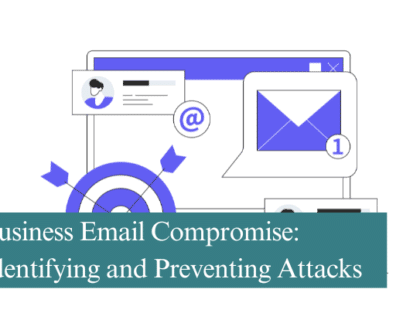
Every day customers give out their private data and information to the businesses they work with and buy from. Their personal data may include cell phone numbers, email addresses, and credit card numbers. Businesses that handle customer data, including card details, face a variety of cyber threats that can put this data in danger.
The result is that businesses are required to protect customer data by following data protection regulations.
Why Do Businesses Need Data Protection?
Many companies today rely on cloud and online transactions that deal with personal data. Unfortunately, criminals are continuously searching for ways to compromise data security for these organisations. Data breaches have become more common than ever, with the goal of stealing information and selling the data to others or using the data to commit fraud.
Organisations handle large amounts of personally identifiable information (PI) that comes from their customers, including credit card details. All of this information is valuable to criminals, who can do significant damage with personal information.
Data protection is essential to keep customer and company details safe from data breaches and losses. When customer data is stolen, businesses face a drop in reputation, business, and even revenue. In addition, they may also face considerable fines for not complying with security regulations, further draining a company’s finances.
Online Businesses & Merchants Are Required to Keep PI Protected
Online businesses and merchants that accept credit cards as payment are required to keep their customers’ credit card details safe and protected. However, many of these companies may not realise they should follow PCI compliance regulations.
What is PCI DSS Compliance?
PCI DSS is the abbreviation for Payment Card Industry Data Security Standard. These are rules that work to keep credit card payments safer and reduce the risks of fraud. These are guidelines that tell a business how they should store, transmit, and process their customers’ credit card (and debit card) details.
The regulations were put into effect in 2006, about the time when e-commerce took off. At about this same time, online credit card fraud was thriving due to lax security standards. This led the largest card companies (Mastercard, Visa, American Express, Diners’ Club, and JCB) to come together to make online credit card use safer. This resulted in the PCI Security Standards Council, which watches over the PCI DSS standards (which apply worldwide).
The PCI Security Standards Council has made it mandatory for all businesses that process or transmit cardholder data to be compliant with the PCI DSS. There are various compliance levels within the regulations that are linked to a company’s annual card transactions.
Is PCI DSS Compliance Required in the UK?
No, PCI DSS compliance is not legally required in the UK. However, it is enforced through the contractual agreement between a company and its bank or card issuer. In other words, compliance is mandated by the PCI Security Standards Council.
Companies that are not in compliance face significant fines if they do not meet PCI DSS compliance.
So, while it’s not legally required for a business to be PCI DSS compliant, it is still mandatory for organisations in the UK.
What are the Laws & Regulations?
First, the PCI DSS standards are relevant to any business of any size that processes transactions, accepts, transmits, or stores cardholder data.
If a company is involved in a data breach, it could face fines of several million pounds.
In order to become PCI compliant, an organisation must have a PCI auditing procedure. There are four levels of compliance; the first level processes the highest amount, while level four processes the lowest amount. During the audit, the company’s security procedures are reviewed, and other aspects of data protection must be in place and regularly maintained to ensure the company’s website is safe.
What are the Requirements to be PCI Compliant?
Here are the 12 requirements a business must include to be PCI compliant:
Use and maintain firewalls: these work to prevent and block criminals from gaining access to private data
Password protection: POS systems, routers, and more usually some with pre-set passwords; however, to be PCI compliant, a company must have procedures in place to change passwords and keep a list of devices and software that require passwords.
Cardholder data protection: this data must be encrypted and have encryption keys (which also need to be encrypted) to be in compliance with PCI regulations.
Encrypt transmitted data: all cardholder data must be encrypted.
Anti-virus: software must be installed and regularly maintained/patched to keep data safe & secure.
Update software: software must be updated regularly; this is one way to ensure security patches are applied as they become available.
Data access: only those employees who need access to cardholder details should be granted access and no one else.
ID access: anyone who is granted access to cardholder details must provide identification and credentials in order to access this information.
Physical location: customer data that’s kept in hard or physical copies should be stored safely and securely, and records of who accesses the data and when should be kept to be PCI compliant.
Access logs: log access software must be used to ensure logging is done accurately, as primary account numbers are required to have a log entry when dealing with cardholder data.
Vulnerability: scanning the company regularly for vulnerabilities is also required to find out-of-date software, physical locations, and human errors that could be exploited by hackers during a data breach.
Document policies: equipment, software, and employees that have access to cardholder data must be documented to be PCI compliant.
The Benefits of Being PCI Compliant
Reviewing all the requirements for being PCI compliant can be overwhelming, but there are many benefits that go along with being compliant.
The main benefit is ensuring the safety and security of your customers’ card details. When your organisation can successfully manage this, company credibility goes up and can lead to additional customers, revenue, and more.
Being in compliance also means you won’t be subject to the high fines charged by the PCI Security Standards Council. In addition, being PCI compliant usually means you’re also automatically compliant with other data protection regulations.
With all of these benefits, it pays to ensure your company is PCI compliant. Customers, partners, and stakeholders will put more trust in your business which can lead to more new customers and a good boost to revenues.
Recommended Posts

Are you making the most of your Microsoft 365 licensing?
4th July 2025


